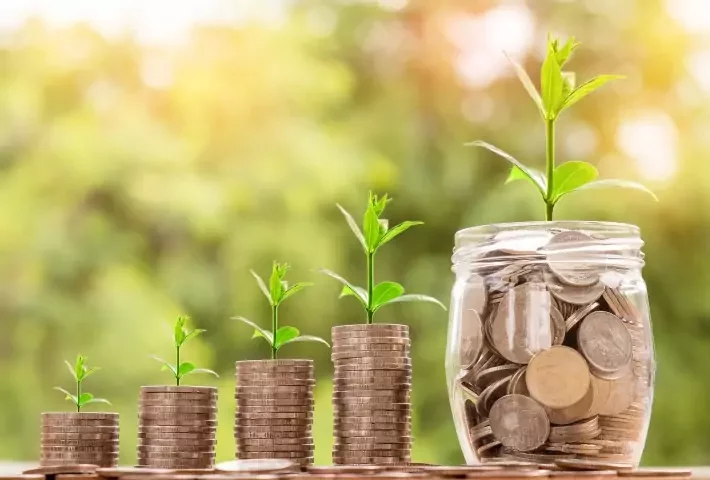A UN report indicates that waste management-related expenditures could decrease from $640 billion to $270 billion by 2050 while simultaneously contributing to a $108 billion gain for the global economy.
Waste Management
Waste is a complex and global issue affecting all aspects of society, from the environment to public health and the economy. It consists of discarded materials that no longer have immediate use for their generators. Population growth and increased consumption have significantly contributed to a rise in waste generation worldwide.
There are various types of waste, including organic, plastic, paper, glass, metal, electronic, and more. How we handle this waste can profoundly impact the environment and people’s health. For instance, improper waste disposal can lead to soil, water, and air pollution, posing risks to wildlife and humans alike.

Additionally, waste can contribute to greenhouse gas emissions, exacerbating climate change. Proper waste management is essential to mitigate these negative impacts. This includes practices such as recycling, composting, controlled incineration, and reducing waste through measures like reuse and curbing excessive consumption.
Awareness of the problems caused by waste has increased over recent decades, leading to initiatives and policies aimed at addressing the issue more effectively. However, much remains to be done to comprehensively and sustainably tackle waste-related challenges. This requires not only individual action but also global cooperation and effective policies to promote more responsible consumption and disposal practices.
Circular Economy
The circular economy represents a systemic approach to addressing global challenges, such as climate change, biodiversity loss, waste management, the use of finite resources, and pollution. It advocates for a comprehensive transformation of our production and consumption systems, carefully considering how we manage resources, manufacture, use, and recycle products.
Only by rethinking these aspects can we establish a thriving circular economy that aims to benefit everyone within the planet’s limits. This approach enhances system resilience, providing the tools needed to address climate change challenges and biodiversity loss while also meeting fundamental social needs.
In a circular economy, material cycles mimic patterns observed in ecosystems, where waste does not exist because every discarded item is reused to create new products. Harmful substances are eliminated, and waste streams are separated into biological and technical cycles.
In this system, it is crucial not only to ensure proper recycling of materials but also to maintain high quality in products, components, and raw materials. For example, the mining industry is changing its approach to disposing of steel and rubber from trucks used in mining operations.
Similarly, in a circular economy, the goal is to extend the utility of energy for as long as possible, primarily driven by renewable sources. A recent example of this approach is the initiative by electric vehicle manufacturers to repurpose discarded batteries, giving them a second life as energy storage systems.
In summary, the circular economy is advantageous not only for businesses but also for people and the environment, offering a sustainable and comprehensive solution to the global problems we face.
Without implementing protective measures, the global cost of dealing with urban solid waste is projected to reach $640.3 billion by 2050, according to the UN’s “Global Waste Management Outlook” report, prepared in collaboration with the International Solid Waste Association, a Netherlands-based organization focused on waste studies and research.
After analyzing different scenarios, researchers concluded that by implementing waste generation control measures, associated costs could decrease significantly, from $640.3 billion to $270.2 billion by 2050. Additionally, adopting the circular economy model, which aims to extend product lifespans, could result in a $108.1 billion gain for the global economy.
The report highlights that without effective measures, global waste production could reach 3.78 billion tons by 2050, representing a 56% increase compared to 2020, when 2.12 billion tons of waste were generated.
Beyond economic impacts, the UN report emphasizes that excessive waste production, its transportation, and processing significantly contribute to climate change due to high greenhouse gas emissions. Improper waste disposal also leads to biodiversity loss, with soil contamination harming wildlife and flora, thereby affecting local communities.
At the current pace of waste production, the projected environmental and climate impacts by 2050 could severely compromise quality of life and public health, with a 91% increase in greenhouse gas emissions. However, by adopting a controlled waste generation approach, emissions could be reduced by up to 69%, potentially reaching a negative rate of 159% with the implementation of the circular economy.
Scenario in South America
In South America, only about 5% of the waste produced in 2020 was directed toward recycling, while over 60% was sent to landfills. The remainder was categorized as uncontrolled disposal, including waste incineration. In comparison, over 40% of waste in Europe is recycled. The report emphasizes that while recycling is important, preventing waste from being generated in the first place is a more effective approach to waste management.
Waste-to-energy plants, which convert waste into electricity through incineration, are already widely used in more industrialized European and Asian countries, representing about 42% of waste generated in Northern Europe. However, this method has yet to be adopted in South America.
Barriers to Solutions
The report identifies the lack of recognition of the urgency of the waste generation problem as one of the main barriers to action by global leaders. It also emphasizes the need for more data, funding, and knowledge to advance the circular economy agenda and to understand the relationship between waste and climate change. It concludes that moving toward a circular economy and a zero-waste approach is essential for a sustainable, secure, and affordable future.

